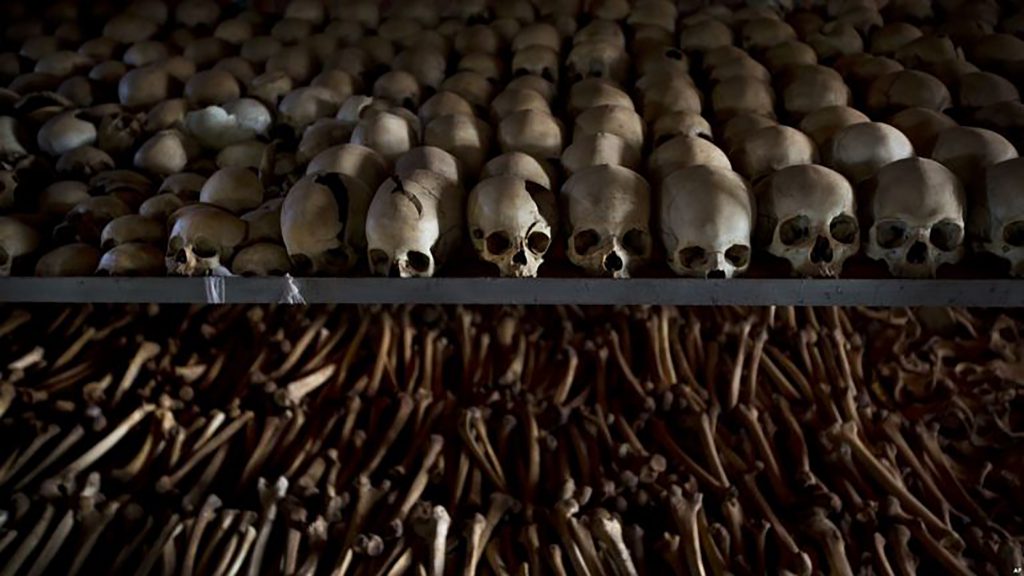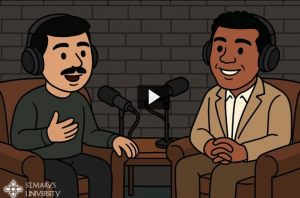In Rwanda there are two ethic groups: the Hutu, which makes up the majority of the population, and the Tutsi, the minority. Tensions between these two groups have been going on for years, so was not surprising that their conflicts would eventually escalate drastically. Despite their differences, they were actually very similar. The two groups have shared the same locations as to where they choose to live, the traditions they follow, and also the language that they speak. At a glance, they look very similar; but Tutsis tend to be taller and slimmer than the Hutus.

Hutu dislike for the Tutsi came about when the Belgians, who once dominated the region of Rwanda, considered the Tutsis to be superior to the Hutus. The Belgians gave the Tutsis better education, and even granted them better jobs than the Hutus. In 1959, a series of riots broke out in Rwanda. Many fled to Burundi, Tanzania, and also to Uganda.1 Unfortunately, 20,000 Tutsis were killed during the riots. In 1962, Belgium relinquished its power over Rwanda, and it was given its independence. The second President of Rwanda, Juvenal Habyarimana, who had been a dictator in power since 1973, and who was also a Hutu, began to lose popularity when the Hutus took over the government and the economy weakened. This is when Paul Kagame, a Tutsi, founded the Rwandan Patriotic Front (RPF) to try and overthrow the president. After much violence, the two sides, the RPF and Habyarimana, signed a peace accord in mid-1993. But on April 6, 1994, the President’s plane was shot down, killing both Habyarimana and the President of Burundi, Cyprien Ntaryamira; and things started to go badly wrong in Rwanda.
After the plane was shot down, the preexisting tensions between the Hutus and the Tutsis quickly flared up. No one knows who shot the plane down, but the Hutus quickly pointed the finger at the Tutsis. Conflict between the two neighboring tribes was nothing new in the central African nation of Rwanda, but the downing of the president’s plane was the final straw for the Hutus. Paul Kagame was accused by the leaderless Hutu government for being responsible for the plane crash and death of Habyarimana.2 Kagame denied this accusation and said that he had nothing to do with it, but news of the death of President Habyarimana spread across the country.
Shortly after the start of Rwanda’s genocide, Rwanda’s government initiated a campaign of retribution, and began to target Tutsis. In just hours, recruits from Hutu groups, government soldiers, and militias were sent to kill the Titus population, a Tutsi-minority tribe living in Rwanda. They were given radios to help them coordinate target groups of people. The recruits were sent into Tutsi cities where they started killing any Tutsi in sight with automatic weapons. For over the one-hundred days, more and more Hutus joined the killing squads, either by force of the government or voluntarily. They started to use machetes, spears, knives, and also masu, which is a thick club with nails sticking out of it. It even got to the point where everyday objects were used.3 They would have screwdrivers, bicycle handle bars, and hammers in one hand, and in the other a radio waiting to hear their next directive. They blew up churches where the Tutsi people were going into hiding to protect themselves, but the churches turned into death sites, trapping those inside when the churches were set on fire. Citizens of the Hutus were even being forced to go and kill the Tutsi people. They were given offers of food and money, and even told that could take the land of a Hutu if they killed them.

American President Bill Clinton did little to stop the massacre, even ignoring the obvious warnings about the killing that would take place after Habyarimana’s plane had crashed.4 Even other countries, like France and Belgium, along with the United States and the United Nations, knew what was about to occur, and wouldn’t take the initiative to try to stop it. For weeks these countries refused to use their moral and political authority to go against the genocidal government of Rwanda. The United States could have done much more to help out a country that was in need. Even a little bit of help would have been something, and maybe a significant number of people wouldn’t have lost their lives. While the American Congress was looking to the President to take action, Clinton was looking to the United Nations to take action. Since nothing was being done, sadly the killing just continued.
The only reason the genocide in Rwanda ended was because of the determination of the RPF. They fought back against the killing squads, and defeated the government’s soldiers. When they took control, Paul Kagame became the Vice President and Minister of Defense. With everything said and done, 800,000 Tutsi men, women, and children were killed from roughly 200,000 participants.5 There were 75,000 children that became orphans. Between 250,000 and 500,000 Tutsi women were raped, resulting in around 20,000 children being born as a result. The HIV virus and AIDS were used as another weapon, with 67% of the women that were raped being infected. If someone would have stepped up before this all unfolded, this would have been prevented and so many people wouldn’t have lost their lives or experience life changing events.
- Samantha Power, A Problem From Hell (New York: Basic Books, 2002) 342-347. ↵
- Samantha Power, A Problem From Hell (New York: Basic Books, 2002) 335-339. ↵
- Encyclopedia of Political Communication, 2008, s.v. “Rwanda Genocide, Role of Media,” by Frank Wittmann. ↵
- Samantha Power, A Problem From Hell (New York: Basic Books, 2002) 353-361. ↵
- Anna-Marie de Beer and Elisabeth Snyman, “Shadows of life, death and survival in the aftermath of the Rwandan Genocide,” Tydskrif vir Letterkunde vol. 52 issue 1 (Autumn 2015): 18. ↵



75 comments
Amanda Gutierrez
This was a great article! The Rwandan Genocide is a topic that is not often talked about in History class. It’s truly devastating how many lives were lost due to unworthy reasons. Hopefully, others can learn from this tragic event and prevent horrific occassions like the Rwandan Genocide from happening again.
Antonio Holverstott
The Rwandan genocide was fueled by hundreds of years of tensions between the Hutus and Tutsis. This tension was greatly cultivated by the rule of the Belgians who believed in theories of Social Darwinism. A theory that claimed that people of European descent were superior to all other races, especially people of African descent. The intensity of the genocide was exacerbated by a lack of foreign intervention that was formed by a high frequency of violence in Africa and racism.
David Castaneda Picon
Wow! This is a great and descriptive article. I have never heard about Rwanda’s genocide before, I can only imagine the fear that people had to face during that event. I think that this event was terrible in human history, many lives were unfortunately taken for not a worthy reason and no one was helping to stop this horrific event.
Samuel Vega
This article on the Rwandan Genocide gave me a different perspective from the “Art of Forgiveness” article on the genocide. In this article you understanding more about the political implications of the genocide and how the lack of involvement of the United Nations, France, Belgium and the United States, likely increased the number of deaths and prolonged the civil war. The featured image drives the impact of the cruelty of death associated with the genocide.
Aaron Sandoval
Events such as this are extremely unfortunate with lives lost for no reason other than one party disliking the other. In the case of Rwanda, you did a good job of detailing the events that occurred as well as detailing how it started and ended. I was not fully aware of the events that occurred other than the fact that thousands of innocent lives were lost, so stumbling upon this article was a good history lesson.
Micheala Whitfield
I’ve actually had the opportunity to take a class with an individual from the genocide. I remember him explaining the fear he had and explaining in detail how he escaped. I could not remember if he explained why or how the genocide started. I’m glad I came across this article because I had no knowledge about it what so ever. I can now get a better understanding. It is a shame to read that our country had knowledge of these killings happening, were asked for help, and still decided not to intervene. This article was pretty eye opening.
Juan Arceo
This article truly depicted the severity of the Rwandan Genocide and the saddening events that came with it. The fact that so many lives were lost from all different generations, truly breaks my heart and the fact that any nation, especially US, if they could have intervened who knows how this event would have played out. Would we have lost more people, less people, would there even be a difference?
Aaron Peters
I found it saddening how massive and needless the waste of life was during the Rwandan Genocide. America’s hesitant action during the conflict is honestly one of the most disappointing actions in the last 30 years. The US government was looking towards others to do something rather than just taking the initiative to prevent further violence. Hopefully the Rwandan people can come together and take steps to prevent such detestable actions from taking place in their nation in the future.
Analisa Cervantes
I knew of the Rwandan Genocide but not full details. Its sad to see how tensions between the two ethnic groups of Tutsi and Hutu escalated to this point. What makes this tragedy worse is the lack of response from both the U.S. and the U.N. By the time they bothered to do anything, it was already too late and thousands had suffered. I never knew that Rwanda was a Belgian colony prior to statehood.
Amanda Uribe
I think this article was well written. I really liked how you were able to tell a story and teach us the culture of these people. It really upsets me how the UN and America did nothing to stop these people from being brutally killed, raped and harassed. It was devastating to hear that 75,000 children became orphans and 65% of women raped contracted HIV. That was not okay. The US should have done something to stop that monstrosity. I understand that it is easier said than done, but there is no excuse to not try to help them when they were defenseless and did not do anything wrong.